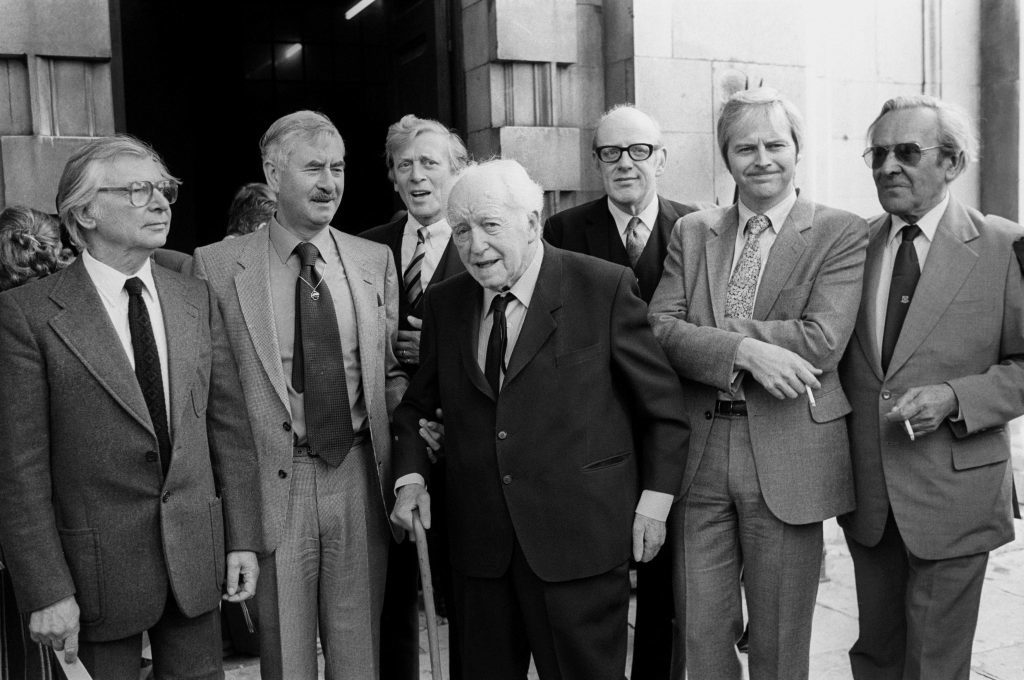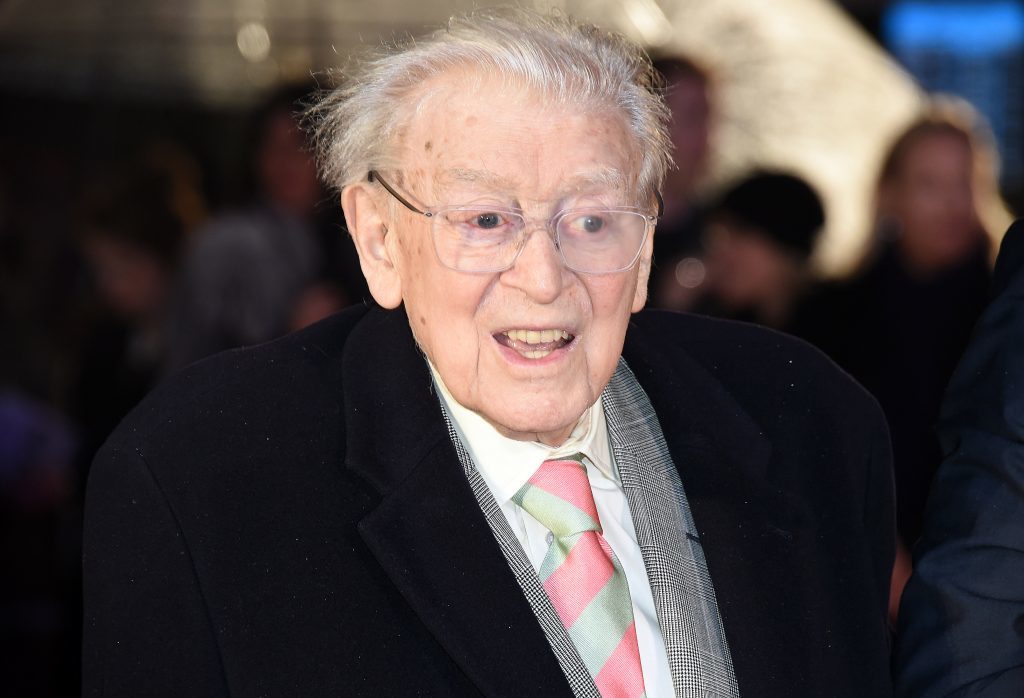The death of comedy writer Jimmy Perry, who created the hit sitcom Dad’s Army, has been described as the end of an era.
The 93-year-old died at his home on Sunday morning surrounded by loved ones, after a brief illness.
The screenwriter, who worked closely with producer David Croft, was also responsible for popular TV comedy shows It Ain’t Half Hot Mum, Hi-de-Hi! and You Rang M’Lord?
His writing drew on his life experiences as a young member of the Home Guard during the Second World War and as a Butlin’s holiday camp Redcoat.
Ian Lavender, 70, who played Private Pike in Dad’s Army, paid tribute to the comedy writer.
He said: “I am sorry to hear about Jimmy. He has been a part of my life for such a long time, half of an amazing partnership (with Croft).
“It is certainly the end of an era, and of course brings back many wonderful memories, lots of good times together with much shared laughter. I will miss him being here.”
In one famous scene from the hit series, the Home Guard members were confronted by a German soldier who demanded the name of the hapless Pike.
Captain Mainwaring’s quick retort of “Don’t tell him Pike” is one of the programme’s best-loved moments.
Others who worked with Perry and fans of his shows said he has left a great legacy.
Tim Hancock said: “As his agent of many years, I have never met anyone as generous, dignified, funny and with as big a heart as Jimmy. He will be sadly missed.”
Shane Allen, BBC controller of comedy commissioning, said Perry’s work spanned decades and will be remembered for a long time to come.
He said: “Jimmy Perry is a Goliath of British comedy writing. He was behind some of the longest running and most loved sitcoms on British television spanning the 60s, 70s and 80s.
“His work will be enjoyed and appreciated for many years to come. Our thoughts are with his friends and loved ones at this sad time.”
Perry may have been best known for Dad’s Army but he regarded It Ain’t Half Hot Mum as his and Croft’s funniest sitcom.
He once dismissed criticism of the show, set in India, saying it was considered racist “because of ignorance”.




